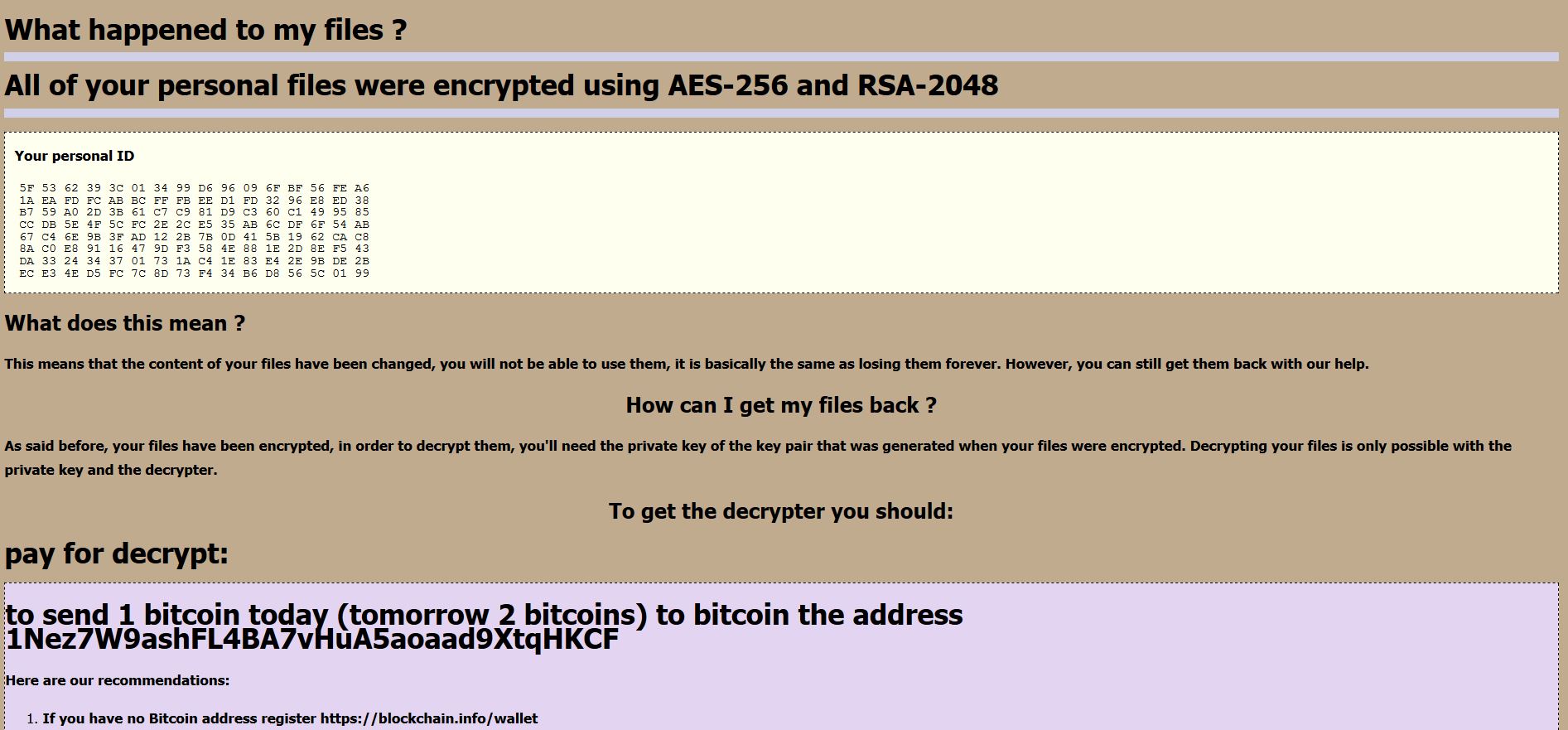What Does Encrypted File Mean
Encryption refers to any process used to make sensitive data more secure and less likely to be intercepted by those unauthorized to view it.There are several modern types of encryption used to protect sensitive electronic data, such as emails, files, folders and entire drives. It's very important to understand what kinds of encryption are most important for a particular need, and to not be lulled into a false sense of security by fancy-sounding process names.There are many that provide excellent security for very little money — sometimes even for free.For example, consider the folder-encryption options available to users of the Microsoft Windows operating system. Microsoft's encryption is generally strong, meaning that most users won't have to seek out additional methods of protecting their sensitive financial data, medical records and other sensitive files.MORE:Or, if you're worried about Microsoft's alleged relationship with the U.S. National Security Agency, try, an open-source, free-to-use software solution.The most dangerous pitfall of folder encryption is that there may be temporary versions of the sensitive files that are not encrypted.Consider this: Most computer users regularly save their work to avoid catastrophic data loss due to a power outage, electrical storm or other unexpected event.
Each time the user saves a file in progress, a temporary version of that file is created and stored in the aptly named 'temp' folder, where it remains unencrypted.Simply deleting temp files isn't enough protection, either. Someone who wants to access your data badly enough will likely be able to access those files using free or cheap. Weaknesses in encryptionAll encryption techniques have weak spots. As these weaknesses are revealed and exploited, new methods of encrypting data are developed to provide additional layers of security for users.One of the most common and bothersome weaknesses occurs when an encryption method, also called a cipher or an algorithm, that's supposed to generate seemingly random strings of gibberish instead produces outputs that have a discernible pattern. If the pattern gets noticed by interlopers, it may help them crack the encrypted data.A similar issue involves encryption algorithms that generate predictable patterns of characters in response to repetitious, predictable input.MORE:If this problem is extensive enough, it can help digital intruders decipher at least part of the encrypted data, which may include financial information, government documents or other sensitive information. In many cases, even a partial data breach can be devastating.
Defenses against hackers and file corruptionIndividuals and organizations that want to add protection to their encryption algorithms often insert extra lines of code to alter the outputs - a practice known as 'salting.' For example, one of the most common passwords used is simply 'password.' Malicious hackers know what 'password' and look like after they're run though common encryption algorithms.But if an organization adds extra characters to each password during the encryption process, such as 'password' plus 'safe,' the output will be something malicious hackers won't recognize — as long as the extra characters are kept secret.Encryption can also be used to verify the integrity of a file or piece of software. The raw binary data of a file or application is run through a special encryption algorithm to produce a 'hash,' a long number unique to that file.Any alteration to the file, such as by a hacker inserting malicious code or by random data corruption, will produce a different hash. Computers and mobile devices compare a new piece of software's stated hash to its actual one before installing the software.A similar process involves running a piece of software through a simple algorithm that produces a single short number, a 'checksum.' Altering the software in any way will likely produce a different checksum.To guard against random, accidental corruption, many pieces of software include protection in the form of self-diagnostic checksum matches that the software performs each time it's launched.
Everyone's concernData encryption is important for everyone, not just big corporations and government officials. The topic can be intimidating for those without extensive computer experience, but thankfully, for most users, keeping sensitive data safe is a relatively straightforward process.The key is to start early and regularly verify the effectiveness of the chosen security measures.Follow us, on and on.
What Does Encrypted File Mean In Spanish
.File EncryptionFile Encryption means providing security for files that reside on media, in a stored state. Those are files that are resting on our hard drives, usb drives or any other type of digital media storage. Those are files that are usually not meant to be sent through network, they are stored locally, being encrypted and temporarily decrypted while being used and than encrypted again after we finished using them. Encrypting stored files prevents others from reading, copying, or deleting encrypted files.
Most often, those encrypted files can be seen in a file listing (such as in file explorer), but they can not be accessed for reading by unauthorized persons. Some file encryption programs require you to decrypt the file before it is used, or read, and this requires you to enter a password, pass phrase, or pin code do decrypt file for viewing. These programs do not rely on the file system such as FAT, NTFS, etc. Printer spooler service repair tool. Others, like Windows EFS do rely on the file system. Windows EFS offers encryption in a transparent state - the file will be automatically or transparently encrypted or decrypted on the fly. That is possible because Windows EFS is built into the operating system - it uses your user and password when you log in into Windows. Such decryption is fast, almost real time, which means there is no noticeable performance overhead when accessing and reading files on disk.A thing to note is, file encryption will not prevent the files from being deleted from hard drive, or usb drive, so it is wise to have a backup copy of those files.

Also, most file encryption programs will not automatically re-encrypt files after use, and those files should be re-encrypted after use.